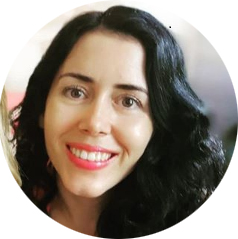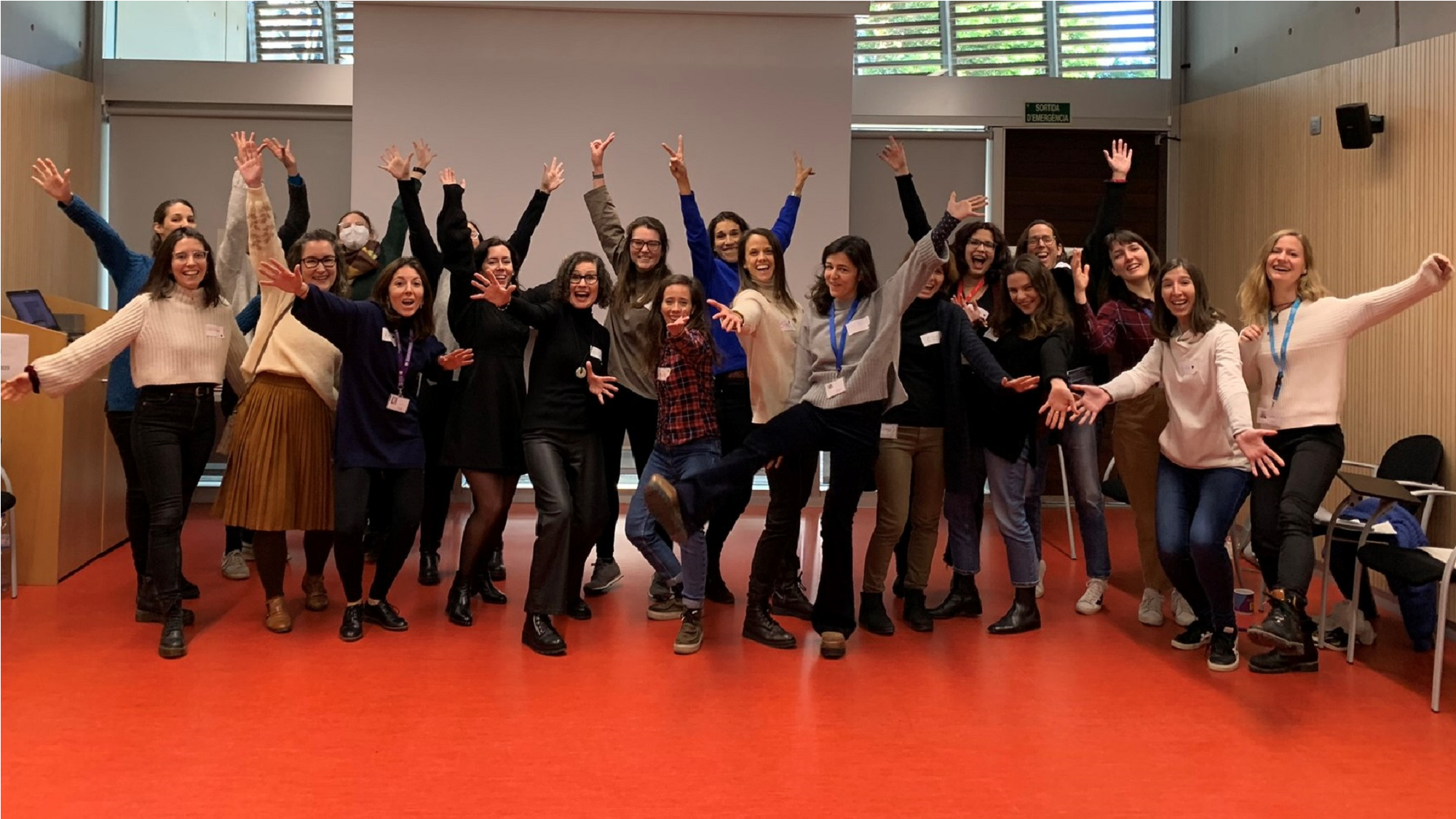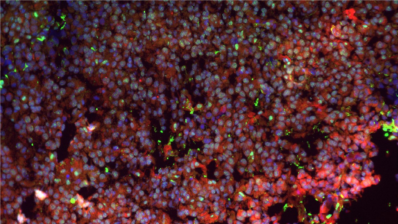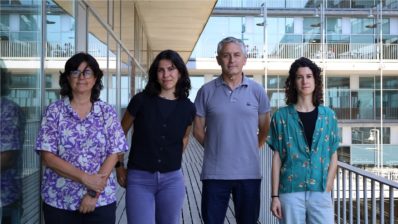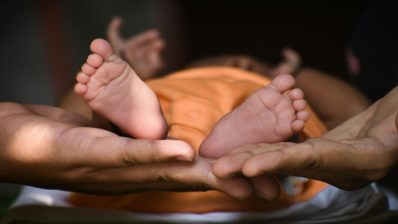The Gender Action Plan of the UPF Department of Medicine and Life Sciences (MELIS-UPF) includes actions to promote women’s scientific careers. One of the most successful initiatives has been a leadership course for junior women scientists designed with trainer Alicia Marín Muniesa in 2018.
Alicia understood our needs from the first meeting and designed an excellent programme that has been run yearly in collaboration with the PRBB Intervals program, and it has even been emulated in other research centres (ISGlobal, IRB and IPHES). Participants are in different stages of their career and can have different roles (PhD students, postdocs, technicians, and project managers). At the end of the course Alicia facilitates a peer coaching session and prepares the group to meet independently from then on so that they can support each other in their challenges. The different cohorts have been meeting regularly, a few times a year, ever since.
Alicia and I had been dreaming about a gathering of inter-cohort participants of the MELIS-PRBB Intervals course for women scientists. Alicia brings out the best in all the participants and generates a feeling of connection in the group.
“Leadership for Women is the most encouraging, interesting and motivating Intervals course that I have ever attended. The content and the activities are tailor-made for us, and the coach, Alicia, is just a genius! She is magical and makes the course a pleasure to attend. We have learned a lot from the course and from her.”
Cristina Salado
The gathering of inter-cohort participants happened on January 19, when we met in a PRBB room for a coffee and to catch up before the session with Alicia. A total of 19 women from 4 cohorts gathered as a sign of our commitment to continuous learning. Together this group of PhD students, postdocs, technicians, PIs and project managers explored 10 aspects that can empower us in our journey to become excellent leaders. These 10 concepts (originally from the Japanese culture) will help us to further develop our self-leadership skills, to support our teams to grow and perform. Some examples of these concepts are:
- Oubaitori (everyone blossoms in their own time, and in different ways)
- Omoiyari (show consideration for others and be thoughtful)
- Shikita ga nai (know and accept when nothing can be done about it)
“It was really moving to see how the women enjoyed reconnecting with their peers. And it was magic to witness how, after two hours of working together, all cohorts just merged into a solid group of women who want to make a change, by introducing a more constructive and supportive leadership style in the world of science.”
Alicia Marín Muniesa
At the end of the session, we asked the participants if they would be willing to participate in an inter-cohort peer coaching group, and they were interested. The benefits of peer coaching are so numerous, it could be considered essential. Sometimes it is hard to find the time in the hectic scientific schedules, but we need to make time to sharpen the saw.
“Participating in this program has been transformational for me personally and professionally. I am so honored to have so many amazing women leaders to support me, and that can count on me. Watch their growth journey over the years has been a true inspiration”
Avencia Sánchez-Mejías
Beyond the sessions
We also asked the participants to write down their ideas for future actions to empower women in the MELIS department, and to promote scientific careers. They came up with brilliant suggestions, clustered around the following concepts: getting inspiration from more experienced women leaders; talks and roundtable discussions with invited women speakers; practical advice (how to manage projects, finances, career development); and regular peer coaching, including a network to foster collaboration and one-to-one peer mentoring. These actions will be included in the next MELIS Gender Action Plan and they will contribute to give women the space they deserve in science, so they can have an even greater impact on the scientific world.
I would like to add a personal thought. These courses and actions are not aimed at changing women, the way they work or their leadership style; instead, what needs to change is the research environment, to become fairer and more inclusive for all. As MELIS professor Cristina Pujades stated, our resolution should be to collaborate in making a scientific society based on equality and fairness. Perhaps new measures in research assessment will contribute to it. While this vision materialises, we can learn skills to successfully progress in research careers. Interested? There will be a new edition of the course in autumn.
